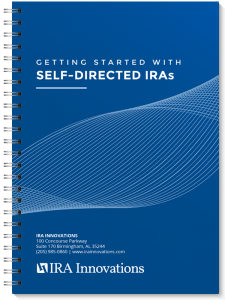What is a Self-Directed Traditional IRA?
An Individual Retirement Arrangement (IRA), sometimes seen as an Individual Retirement Account, allows individuals to collect tax-deferred money for retirement. Contributions made by individuals are tax-deductible, and any gains, dividend income or interest from the original funds become tax-deferred upon withdrawal. The IRA provides asset protection, with assets passing to future generations for accounts that qualify.
Unlike other IRAs, a self-directed IRA is unique because it allows the IRA owner to make decisions and exercise full flexibility in choosing their investments. In addition to investing in stocks, mutual funds and bonds, an IRA owner can invest in real estate, energy, precious metals, and other alternative investments as part of a self-directed IRA.
Challenges of a Self-Directed Traditional IRA
As with any investment, there are risks and challenges and this too applies when starting a self-directed IRA. In order to qualify as a self-directed IRA, the custodian, an appointed financial institution that holds the IRA’s investments for safekeeping and adheres to IRS and government regulations, may not provide any advice or guidance at any point. The selected custodian will hold title to the assets, so an IRA owner must trust and be comfortable with this person or entity.
Additionally, the funds are not FDIC-insured. The plan asset needs to generate enough to cover the expenses of that asset. A self-directed IRA is complex and requires more energy than other retirement accounts to effectively manage and set up.
Benefits of a Self-Directed Traditional IRA
- Diversified portfolio investment options: A self-directed IRA allows individuals to invest in alternative investments, such as real estate, energy and more.
- Tax-deferred wealth: Tax-deferred investments/tax-free profits (with the possibility of significant tax deductions), can set an individual up for a successful future.
- Generational success: Specific self-directed IRAs grant the passing of assets to beneficiaries after death with limited (or no) tax implications.
Self-directed traditional IRAs allow individuals to receive the tax benefits of a tax-deferred retirement account with investments and greater profit potential than traditional stock or funds. IRA owners can pick the best investments that help their retirement accounts grow larger in value.
Get Tax-Deferred Earnings with Self-Directed Traditional IRA
A Traditional Individual Retirement Account is the oldest and most common type of retirement plan. A self-directed traditional IRA allows you to select the investments that you choose within your retirement plan. Funding Your Self -Directed IRA or Real Estate IRA – With a IRA Rollover, Transfer or Contribution.
Funding Your Self Directed IRA
The most common technique to funding a self-directed traditional IRA is through making a contribution to your account. You may also roll over or transfer funds from an existing employer plan, such as a 401(k), a pension plan or another traditional IRA. If your current traditional IRA does not allow self-direction, you may also transfer those funds to an IRA Innovations self-directed traditional IRA so that you may choose your investments.
If you have earned income and want to save for retirement on a tax-deferred basis, you may contribute to a self-directed traditional IRA until you are 70½ years of age. Why Consider an IRA Innovations Self-Directed Traditional IRA
- You are eligible to deduct your contribution now and you anticipate your tax rate at retirement to be lower than your current tax rate.
- You need a tax deduction, lowering your current tax bill. (Some investors still contribute to an IRA account even without the tax deduction).
- If your income is over $65,000 (single) or $109,000 (joint) for 2009 (and $66,000 (single) or $109,000 (joint) for 2010) since you are not eligible to make a Roth IRA contribution.
- You are looking for a larger choice of investment options for your funds.
If you are eligible to contribute to an IRA, the amount you can deduct from your taxes will depend on whether you (or, in some cases, your spouse) are an active participant in a retirement plan at work.
Call IRA Innovations at (205) 985-0860 and get started on your self-directed IRA today.
We are never in conflict with your investment decisions because we do not endorse or sell any investment products.

